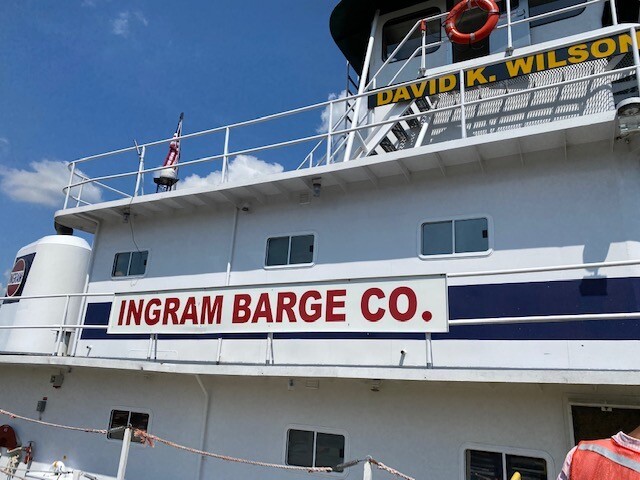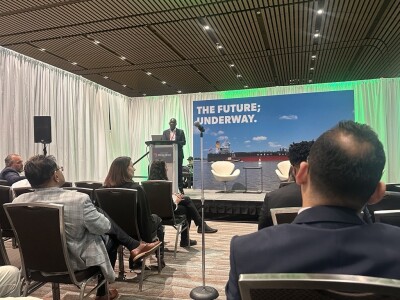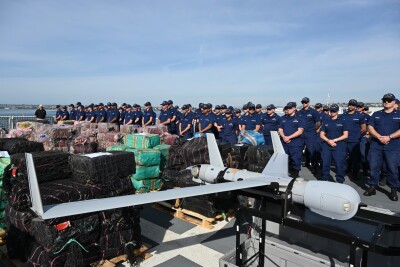Like many other industries, the inland barge sector is feeling the pinch of a tight national labor market.
Companies continue to post jobs for an array of shoreside and vessel positions, but the candidates aren’t materializing.
Hiring managers are getting creative — or perhaps a bit desperate — offering incentives to attract new hires and convince existing workers to stay. They post on various social media and maritime platforms. They also ask employees to share job links on their social media accounts, offer bonuses to employees who make successful referrals, and go to high schools and community colleges to extoll the advantages of a maritime career. They recruit military veterans, and hang help wanted banners outside their offices.
But this has had only mixed results, with entry level positions the most difficult to fill. Some operators report that they can’t hire people fast enough to keep up with the rate of those leaving.
So why is it so tough to fill vacancies and keep workers on the job?
As Oscar Harrell, vice president of operations at Ingram Barge in Paducah, Ky., told me, they are seeking a better work-life balance. After a stressful year of working non-stop through the Covid-19 pandemic, maritime workers are reassessing what they want out of their jobs, how much they want to earn, and how they weigh the pros and cons of certain professions.
Mariners are seeing that with a national job shortage, wages in other industries are going up, and this balance may be better elsewhere. They could go home every night after work, rather than be out on the river for a 28-day stint.
“When you go past places that are asking less from their people from a labor and quality of life standpoint than we are, and they can’t find people, you’re going to be second or third choice and that’s where we are right now in this national labor shortage,” Austin Golding, president of Golding Barge, Vicksburg, Miss., said at a recent WorkBoat webinar.
This is posing a big challenge to inland barge lines as they try to make their industry stand out in a competitive job market. Management at both big and small barge companies are looking hard not only at how they recruit and what they pay, but also at whether work schedules onshore and on the boats can be adjusted or varied to be more accommodating to workers.
“Culturally we have to resell ourselves to the next group of employees and position ourselves from a wage standpoint that’s going to be more attractive. That doesn’t necessarily mean more money, but maybe a different work schedule, different benefits, but probably more money to be honest,” Golding said. “The base wage that we offer is a lot less competitive than it used to be. You’ve seen wages increase in a time when the market doesn’t support wage increases.”
Golding also said that if a tankerman doesn’t see a clear path toward the wheelhouse or to another position that offers more income, “they’re going to look at other professions that bring them home more. When we ask somebody to be gone for 28 days and take 14 off, or they are on for 28 and off 28, it’s a lot to ask in the current life that we all know now. So, we’ve got to get creative on how we sell our industry and how we promote it, not as a static job and find a way when (economic) conditions improve to make room within our rates to improve the wage for our men and women on the water.”
Golding added: “But right now if the supply of deckhand applicants doesn’t improve, we’re short. If there’s Covid exposure, we must replace our crews, and there are people at home dealing with death and illnesses. They don’t want to come back and we must make arrangements for them to be home. It’s the most difficult time our HR department has ever had in our company’s existence.”
Peter Stephaich, chairman and CEO of Campbell Transportation Co., Houston, Pa., said his company has had similar experiences in the western Pennsylvania job market.
“We have a very good package of benefits, very broad and generous,” Stephaich said at the webinar. “We’re going to have to give a lot more money. But try going out and getting rate increases from your customers in this market, it’s just not going to happen, so it’s going to come out of your margin. It’s a difficult situation, but you’ve got to run the boats, and you’ve got to deliver under your contracts.”
Jennifer Carpenter, president and CEO of American Waterways Operators, said operators face a longer-term challenge to “make sure we’re prepared to make ourselves attractive to advance and train the next generation of mariners, especially minorities and women.”
“We need to make sure we’re telling the story of great opportunities of this industry and the opportunities that exist for advancement for someone who doesn’t have a college degree,” she said. “Our members are asking the questions of what do we need to do to assure a supply of people that makes this industry go.”
But, Carpenter added, big swings in the labor market are usually temporary, “and we will get through this. It won’t always be as tight as it is now.”
Let’s hope she’s right.





